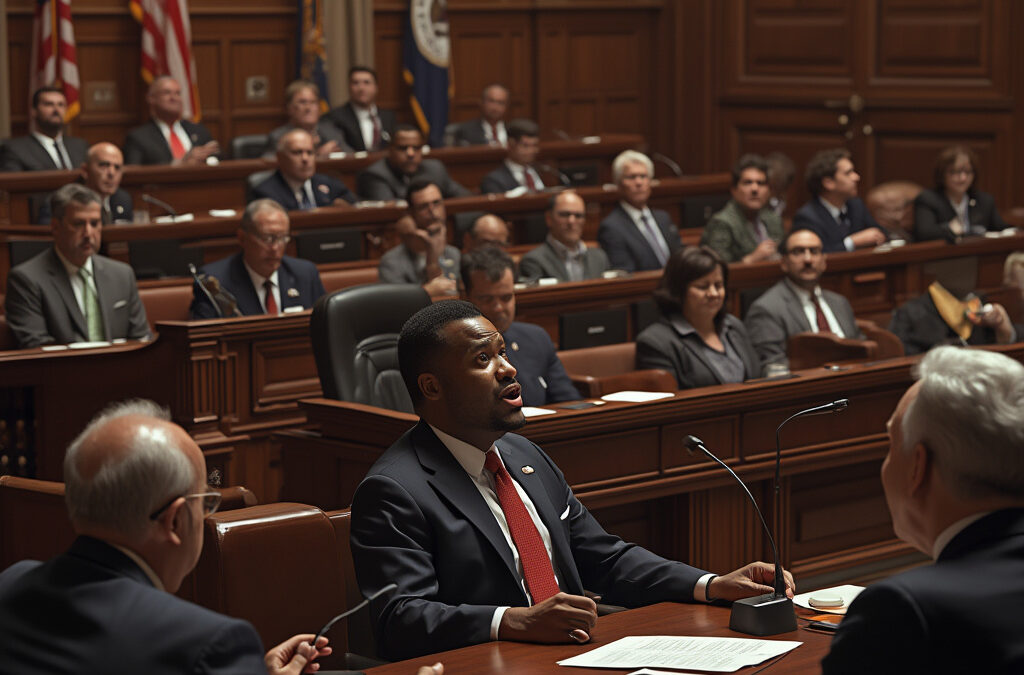“`html
Georgia Lawmakers Push to Ban Traffic Cameras Near Schools
A growing number of Georgia lawmakers are calling for the removal of automated speed cameras in school zones, reigniting a contentious debate over safety, fairness, and government enforcement.
House Bill 225, introduced on February 4, 2025, seeks to repeal a 2018 law that authorized the use of automated speed detection devices in school zones. The proposed legislation has garnered significant momentum, with over 100 of Georgia’s 180 House representatives already backing the measure.
The bill targets three key areas: it would prevent local governments from entering new contracts with camera companies, potentially end existing programs prematurely, and address concerns about camera operating hours and fines.
Supporters of the ban argue that the current system often feels like entrapment. They point to instances where cameras were operated continuously, even during non-school hours, raising questions about their true purpose.
However, not all lawmakers agree. Opponents, including a representative from South Fulton, emphasize the safety benefits of the cameras. They cite a tragic 2018 incident where a speeding vehicle killed a student outside a middle school, highlighting the potential risks of removing these enforcement tools.
In addition to the outright ban, another proposal, House Bill 651, aims to reform the system rather than eliminate it. This bill would impose stricter regulations, including limits on when cameras can issue tickets and requirements for notifying drivers.
The debate has been further complicated by revelations about political contributions from camera companies. An investigation found that three major firms have donated nearly $700,000 to Georgia lawmakers over the past four years, raising questions about the influence of money in the legislative process.
As both bills move to the state Senate, the outcome remains far from certain. While the reform bill, HB 651, received stronger initial support in the House, lawmakers acknowledge that the Senate may take a different approach to the issue.
This legislative push in Georgia reflects a broader national conversation about automated traffic enforcement. The debate balances competing priorities: improving road safety, ensuring fairness for drivers, and addressing concerns about revenue generation.
“`
Key Provisions and Implications of the Proposed Ban
House Bill 225, introduced on February 4, 2025, seeks to repeal a 2018 law that authorized the use of automated speed detection devices in school zones. The proposed legislation has garnered significant momentum, with over 100 of Georgia’s 180 House representatives already backing the measure.
The bill targets three key areas: it would prevent local governments from entering new contracts with camera companies, potentially end existing programs prematurely, and address concerns about camera operating hours and fines.
Supporters of the ban argue that the current system often feels like entrapment. They point to instances where cameras were operated continuously, even during non-school hours, raising questions about their true purpose.
However, not all lawmakers agree. Opponents, including a representative from South Fulton, emphasize the safety benefits of the cameras. They cite a tragic 2018 incident where a speeding vehicle killed a student outside a middle school, highlighting the potential risks of removing these enforcement tools.
In addition to the outright ban, another proposal, House Bill 651, aims to reform the system rather than eliminate it. This bill would impose stricter regulations, including limits on when cameras can issue tickets and requirements for notifying drivers.
The debate has been further complicated by revelations about political contributions from camera companies. An investigation found that three major firms have donated nearly $700,000 to Georgia lawmakers over the past four years, raising questions about the influence of money in the legislative process.
As both bills move to the state Senate, the outcome remains far from certain. While the reform bill, HB 651, received stronger initial support in the House, lawmakers acknowledge that the Senate may take a different approach to the issue.
This legislative push in Georgia reflects a broader national conversation about automated traffic enforcement. The debate balances competing priorities: improving road safety, ensuring fairness for drivers, and addressing concerns about revenue generation.

Conclusion
The debate over banning traffic cameras in Georgia school zones has sparked intense discussion among lawmakers, balancing safety concerns, fairness for drivers, and the role of government enforcement. House Bill 225 proposes a complete ban, while House Bill 651 seeks to reform the system with stricter regulations. As both bills move to the Senate, the outcome remains uncertain, with significant implications for road safety and traffic enforcement policies in Georgia and beyond.
Frequently Asked Questions
What is House Bill 225?
House Bill 225 aims to repeal a 2018 law that authorized automated speed cameras in school zones. It would prevent new contracts with camera companies, end existing programs early, and address issues like operating hours and fines.
Why do lawmakers want to ban traffic cameras?
Supporters argue that cameras often operate outside school hours, raising concerns about their purpose and fairness. They believe the system can feel like entrapment for drivers.
What is the opposition’s stance on the ban?
Opponents, including a representative from South Fulton, emphasize the safety benefits of cameras. They cite incidents, like a tragic 2018 accident, to highlight the risks of removing these enforcement tools.
What role has political contributions played in this debate?
An investigation revealed that camera companies donated nearly $700,000 to Georgia lawmakers over four years, raising concerns about potential influence in the legislative process.
What happens if the ban is passed?
If passed, the ban would prevent new camera contracts and potentially end existing programs early. This could impact both road safety and revenue generation in Georgia.
How does this debate fit into a broader context?
The debate reflects a national conversation about automated traffic enforcement, balancing priorities like safety, fairness, and revenue concerns. Similar discussions are occurring in other states across the U.S.

